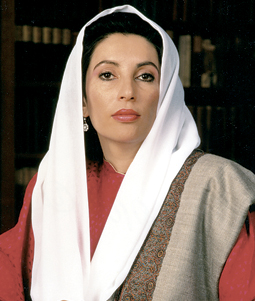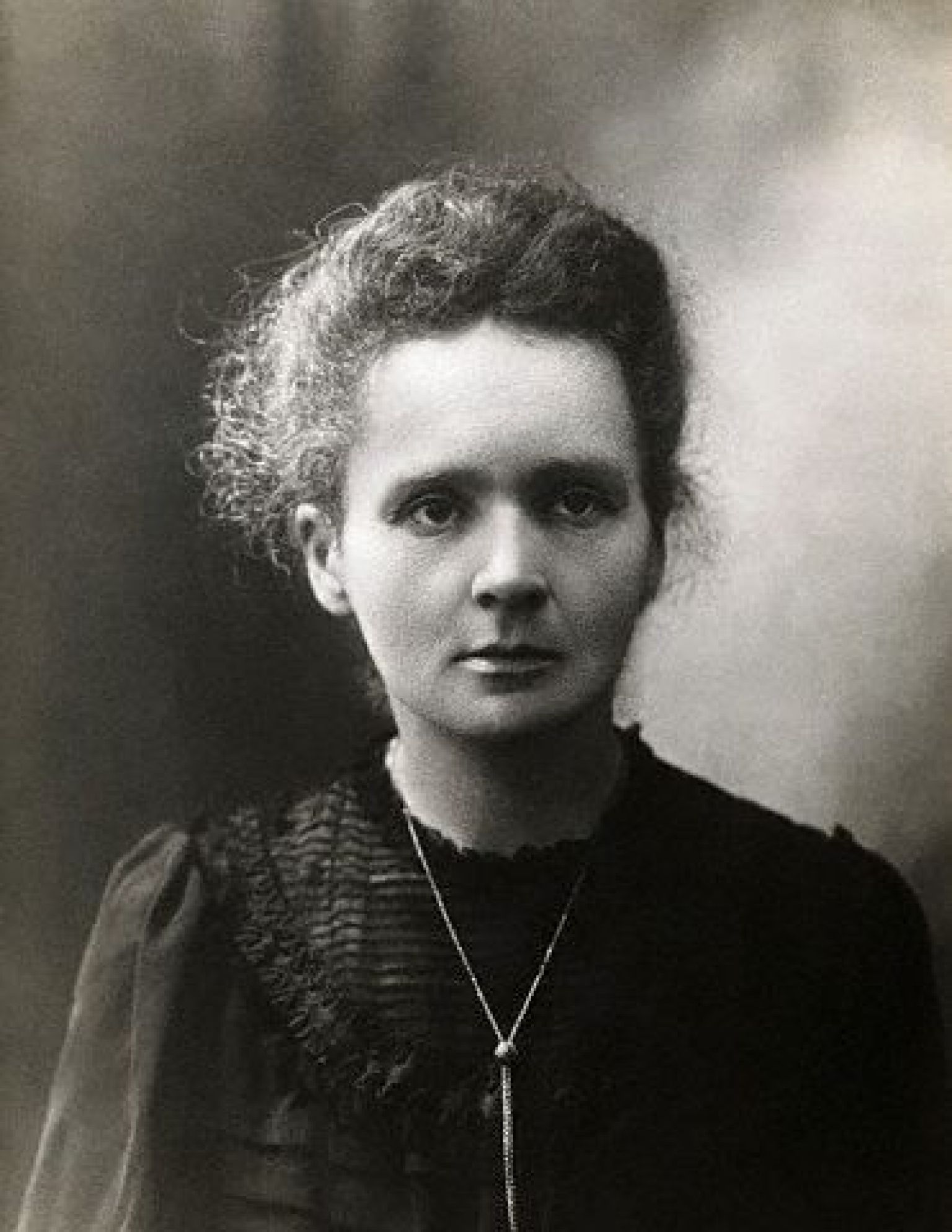As I was running down my usual routine of internet "check-up's" (Facebook, Hotmail, EthicalAtheist, ArmenianGenocide, and some others), I bumped into MSN's main page after logging out of my Hotmail account, and discovered an interesting article. It's called Why Women Should Rule the World, which is an exerpt from the book with the same name by Dee Dee Myers. Now, before I discuss this article in more detail, I have some questions pertaining to the title of this article: what does it mean to rule the world? Is it political power; the power to influence; military power; the power to kill; or is it the power to prevent the conception of children; to prevent human life on Earth as we know it from ever existing? Is it easier to kill, or is it easier to prevent life from entering into the world? Another thing we must note is that Dee Dee is a woman, who admits within the article itself in one of the bolded points below that she has a pretty good chance of being biased toward "girl power." Apparently, it's all a matter of leadership styles.
A Matter of Leadership StylesThis is the common knowledge pointed out here: men tend to lean more toward being brutes than women do, and women are more sociable. However, women tend to be "soft" because of this sociability, and at times, softness isn't a good thing. Once people know you're easy to step on, they'll walk all over you. Perhaps this level of softness is what lead us to being more into helping others, and we all know that when you help somebody, they're more likely to do something for you. With that being said, people listen to us because there's an emphasis on closeness and warmth, and we give that. But, would that work in the military? I'm not going to imply that it wouldn't, because certainly, no military has applied caring and understanding as part of their policy on how they treat their recruits, soldiers, combatants, whatever the names are.
All of which begs the question: Do men and women lead differently? Is there such a thing as a "female style"? A recent analysis of forty-five separate studies addressing the question found that the answer was "yes." Women are slightly more likely to be "transformational" leaders, collectively setting goals and empowering their teams to achieve them. And men are more likely to be "transactional" leaders, letting subordinates know what is expected, rewarding them for their successes and holding them accountable for their failures. Not surprisingly, most leaders did not fit neatly into one or the other of these categories, but there was, nonetheless, a measurable difference based on gender.
Now comes the kicker: Research also shows that transformational leaders --The point made here is that people will want to feel appreciated. Women give that feeling of appreciation.
especially those who also reward good performance, a positive aspect of
transactional leadership common among women - tend to be more effective,
particularly in the less-hierarchical, fast-paced, and innovation-driven
contemporary world. So not only do women have a somewhat different style; it's
more likely to be successful.
To me, what's most important about that finding is not that women rule (though I obviously have a soft spot for studies and statistics that put us girls in the most flattering light). Rather, it's further evidence that there is more than one way to bring home the bacon and fry it up in a pan, that different leadership styles -- regardless of their gender bent -- can get the job done. And that gives everyone more options; it creates a more flexible, more adaptive and ultimately more productive workplace.
Sum: different strategies work best in different situations. Diversity increases productivity in the work process. I've no arguments with Dee here.
"By valuing a diversity of leadership styles, organizations will find theAgain, diversity rules.
strength and flexibility to survive in a highly competitive, increasingly
diverse economic environment," says Dr. Judith Rosener of the University of
California, Irvine.
Bringing up the topic of diversity, I have a scenario for you to think about: let's say the whole world was 100 people. You've got 30 women, who tells everyone what goes - they're the leaders. Then you've got 35 women who listen to them, as well as 35 men who listen to them, too. Is the leadership they're undertaking really diverse? Or, what if it was 30 men ruling everyone? Or better yet, let's say there are 15 men and 15 women leading the 70 others, who are also 50% women and 50% men. According to Judith's lean toward diversity, would that not make things better? Would that mean one group is better than the other at leading?
The answer to that question is no. Because there is an equal split, and because the leaders are as diverse as the subordinates, the needs of everyone, or at least the majority, are met as best-suited as possible. Now, back to the article.
Sally Helgesen, a leadership development expert, believes that because women
have rarely fitted easily into corporate molds not designed for them, they have been "forced to pioneer policies and strategies that are turning out to be exactly suited to the conditions of the new knowledge-based economy. In the end, women's greatest contribution to our changing world may be their insistence upon breaking the mold rather than just fitting in."
Challenges create struggles. Struggles create needs for solutions. The creation of solutions needs creativity in order for solutions to be created in the first place. Now, looking at this again, this seems to apply more toward a European or North American viewpoint. As a lady once discussed with me, there have been societies in time's past where men have been considered to be below women (like in several Native tribes), and thus, had more to struggle for.
Among other things, the line between work and home is fading, and people --
especially women -- are learning to invent their own positions. I more or less
invented my current "job," which I sometimes describe as "stay-at-home pundit."
It's an interesting and flexible mix that has included contributing to Vanity
Fair, giving speeches, yakking about politics on television, consulting on
politically themed-movies and television shows, and writing about stuff that
interests me. I work out of an office in my house, which saves me time commuting
(and I confess, on some days, showering). My children have (mostly) learned to
respect my closed door, and when they don't, I escape to the local public
library, conveniently equipped with free wireless Internet. The technological
innovations and cultural transformations that allow me to do what I do came
together just in time for me. While I realize that it can't work for everyone,
there's no question that opportunities to define a career path will continue to
increase -- a trend that I believe will be led by women.
It probably will be led by women, considering there's been, historically, more challenges, and thus more need for creativity for women rather than men.
The biggest downside to my current arrangement is the anxiety that I feel when I
face the "occupation" line on a school form or loan application. I usually write
"consultant" -- and then hope I don't get busted for I'm-not-sure-what. There's
also a certain guilt that comes from not having to leap out of bed before dawn
to unload the dishwasher, fold the laundry, shower and blow-dry and apply
makeup, get the kids ready for school, and burn rubber backing out of the
driveway at 7:45 a.m. I recently saw a cartoon that summed up my life. A couple
is sitting at the kitchen table in their bathrobes, drinking coffee. As the man
taps away on his laptop, his wife says: "You've blurred the boundary between
working from home and being unemployed."
This increasingly less structured, more flexible workplace suits women's
lives -- and their skills. "When you put together a thirty-person project team
[in the past], it was all people from Raytheon," explains Tom Peters, the
management consultant. "Now, the thirty-person project team involves people from eleven companies, seven countries, and three continents. There's no formal power or hierarchy. So we need a different set of relation-driven skills."
Again: women understand people better than men. Women have also been proven to be better at multi-tasking than men, so the range of flexibility works better for them than it does for men.
"This is why you want to hire women," says Pat Mitchell, a pioneer inEnding off on this article, it basically implies that women should rule the world. Well, should we? Do you feel appreciated when someone's ruling over you? And why don't women rule the world? Or, is this implying that we're subordinates, and we shouldn't be subordinates, but the superiors? In the end, it all comes to this: do you feel better being someone's subordinate, or having a subordinate of your own? Considering that people listen to others when they have a relation of warmth and closeness, having one over the other might diminish that warmth, and thus, make the idea of women having to be superior or men having to be superior worth as much as nil.
broadcast news and the current president of the Museum of Radio and Television.
"They are consensus builders. They really do look for different ways to resolve
things. They are innovative and creative thinkers. And they do act on instinct
and intuition."











